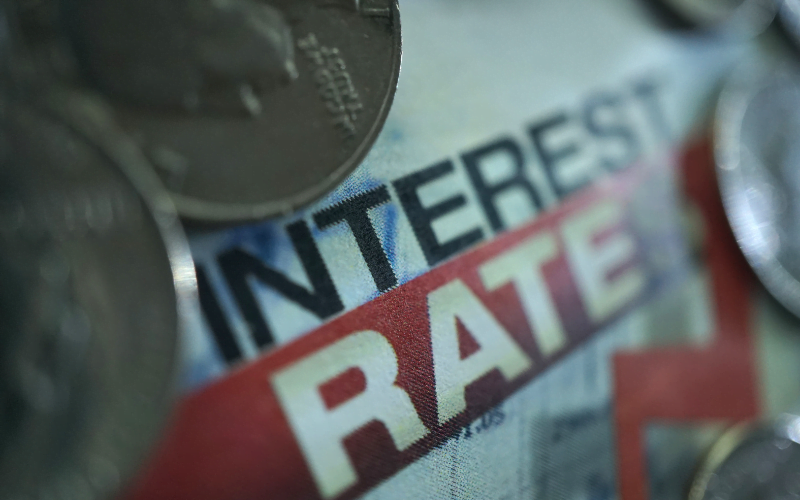Did you know that 97% of businesses in Singapore are small and medium-sized enterprises (SMEs)? Yet, many struggle to get traditional loans. This fact shows how important micro loans are in Singapore’s economy. As more people look into instant micro loans, knowing about micro loan interest rates is key.
This guide will explore micro loans in Singapore. We’ll look at interest rates, compare lenders, and give tips for getting the best deals. If you’re starting a business or need a small loan, this guide will help you understand the micro loan world better.
Key Takeaways
- Micro loans are vital for Singapore’s SMEs, which make up 97% of businesses
- Interest rates vary widely among different micro loan providers
- Instant micro loans offer quick access to funds for urgent needs
- Personal loans can be an alternative to micro loans for individuals
- Comparing offers from banks, licensed moneylenders, and online platforms is crucial
- Government-backed programs often provide more favorable interest rates
- Understanding eligibility criteria and loan terms is key to securing the best rates
Understanding Micro Loans in Singapore
Micro loans are key in Singapore’s financial world. They help individuals and businesses with small funding needs. Let’s dive into how micro loans work in the Lion City.
What are micro loans?
Micro loans are small financial tools. They help people and small businesses get quick cash. These loans are between $1,000 and $100,000 and have shorter payback times. They are a big help for entrepreneurs and SMEs starting or growing their businesses.
Types of micro loans available
Singapore has many micro loan options for different needs:
- SME micro loans: For small and medium enterprises
- Working capital loans: For everyday business costs
- Equipment financing: To buy business equipment
- Startup loans: For new businesses
Who can apply for micro loans?
Many people in Singapore can get micro loans:
- Small business owners wanting to grow
- Startups needing initial money
- Self-employed people needing short-term loans
- Entrepreneurs with new business ideas
To get a small business loan or SME micro loan, you must meet certain requirements. You usually need a registered business in Singapore, a good credit score, and to show you can pay back the loan.
“Micro loans have been a game-changer for my business. The quick approval process and flexible terms allowed me to seize growth opportunities without delay.”
Factors Affecting Micro Loan Interest Rates
When you apply for a micro loan in Singapore, knowing what affects interest rates is key. Your credit score is a big factor. A good score means better rates, but a bad score can lead to higher rates.
The loan amount and how long you plan to pay it back also matter. Smaller loans paid back quickly usually have lower rates. This is because they’re seen as less risky.
Interest rates can change with the market and economy. When the economy is shaky, rates might go up. But in good times, rates can be lower.
- Your employment status and income level
- The purpose of the loan
- The lender’s policies and risk assessment
Some lenders, like Avis Credit, look at these things when you apply for a personal loan. They might give you better rates if you have a steady job and earn more.
“Understanding these factors can help you make informed decisions when seeking a micro loan,” says financial expert Sarah Tan.
To get better micro loan interest rates, work on your credit score. Pick the right loan amount. And compare offers from different lenders. This way, you can find the best rates for your needs.
Micro Loan Interest Rates: Comparing Offers from Different Lenders
When looking for a sme micro loan for startups or an instant micro loan, it’s key to check out different lenders. Each lender has its pros and cons, which affect the interest rates and loan terms.
Banks vs. Licensed Moneylenders
Banks usually have lower interest rates but are picky about who they lend to. Licensed moneylenders are quicker to approve but charge more. For instance, banks might ask for 7-9% per year, while moneylenders could want up to 4% a month.
Government-Backed Micro Loan Programs
Government-backed schemes like the SME Working Capital Loan have rates around 5-6% per year. These programs are made for small businesses and startups. They’re a good choice for SME micro loans for startups.
Online Lenders and Fintech Companies
Fintech companies offer quick micro loans with easy applications. Rates can be from 1% to 4% a month. But, borrowers should look closely at the terms and conditions before agreeing.
“Digital lenders have changed the game, giving businesses fast access to the funds they need.”
When comparing loans, think about these things:
- Annual Percentage Rate (APR)
- Loan tenure
- Processing fees
- Prepayment penalties
- Collateral requirements
Looking at these factors helps you find the best micro loan for your business.
Tips for Securing the Best Micro Loan Interest Rates
Getting a micro loan with good interest rates can greatly help your small business or personal finances. Here are some tips to get the best deal:
- Boost your credit score: A higher credit score can lead to better interest rates on micro loans and personal loans.
- Shop around: Compare offers from different lenders to find the most competitive rates for your small business loan.
- Negotiate terms: Don’t be afraid to discuss rates with potential lenders. They may be willing to offer better terms.
- Leverage government programs: Look into government-backed micro loan initiatives that often come with lower interest rates.
Improving your financial profile can significantly impact the interest rates you’re offered. Consider paying down existing debts and maintaining a stable income before applying for a micro loan.
“A well-prepared loan application can increase your chances of approval and secure better rates,” says a spokesperson from Enterprise Singapore.
Always read the fine print on any loan offer. Some lenders may advertise low rates but include hidden fees. By doing your homework and following these tips, you’ll be in a better position to secure a micro loan or small business loan with terms that work for you.
Conclusion
Micro loans are key for small businesses and individuals in Singapore. It’s important to know about micro loan interest rates. This knowledge helps you make smart financial choices.
When looking for a loan, check out offers from banks, licensed moneylenders, and government-backed programs. Online lenders and fintech companies also offer new ways to borrow.
Here are some tips for getting a micro loan:
- Compare interest rates from different lenders
- Think about your financial situation and if you can repay the loan
- Always read the loan agreement carefully
- Consider getting advice from a professional before you decide
By following these steps, you’ll be ready to find a micro loan with good interest rates. Remember, borrowing money wisely is important for your financial health and reaching your goals.
“A well-informed borrower is a smart borrower. Take the time to understand micro loan interest rates and choose wisely.”
With the right knowledge and approach, micro loans can help you grow your business or reach your financial goals in Singapore’s fast-paced economy.
FAQs about Micro Loan Interest Rates in Singapore
1. What are micro loan interest rates?
Micro loan interest rates refer to the percentage of the loan amount that borrowers are required to pay in addition to the principal amount borrowed. These rates are set by the lending institution and vary depending on multiple factors such as the borrower’s creditworthiness, the loan amount, and the repayment period. Micro loans typically have higher interest rates compared to traditional loans, as they are often considered riskier for lenders.
2. How do micro loan interest rates in Singapore compare to other types of loans?
Micro loan interest rates in Singapore are generally higher compared to traditional bank loans. This is because micro loans are often offered to individuals or small businesses with limited credit history or collateral. Additionally, the loan amounts are typically smaller, which means that the administrative costs of processing and monitoring these loans are relatively higher for lenders. However, micro loans play a crucial role in supporting entrepreneurship and providing financial assistance to underserved communities.
3. What factors influence micro loan interest rates in Singapore?
Several factors influence micro loan interest rates in Singapore. Firstly, the borrower’s creditworthiness plays a significant role. Lenders assess the borrower’s credit score, repayment history, and financial stability to determine the interest rate. Additionally, the loan amount and repayment period may impact the interest rate. Shorter repayment periods often result in higher interest rates. Lastly, market conditions, the lender’s cost of funds, and the risk associated with lending to specific industries or sectors also contribute to the overall interest rate.
4. Can borrowers negotiate the micro loan interest rates in Singapore?
While borrowers may have limited room for negotiation regarding micro loan interest rates in Singapore, it is always worth discussing the terms with the lender. Factors such as good credit history, strong business performance, and a solid repayment plan can strengthen the borrower’s position. Building a relationship with the lender and providing additional collateral or guarantees can also influence the interest rate. It is advisable to compare offers from different lenders to find the best micro loan interest rate that suits your financial needs.





